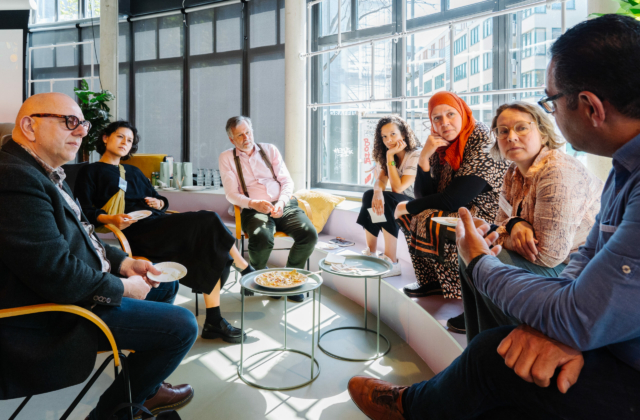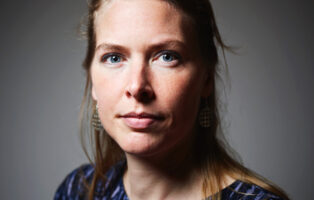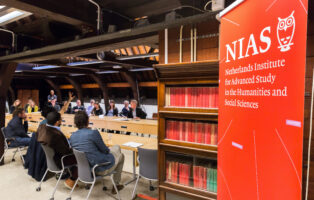
NIAS Code of Conduct
In addition, we all honour the Universal Declaration of Human Rights and the Dutch state of law.
Commitment
All at NIAS cooperate to create and maintain a civil, inquisitive and engaged environment. We seek to secure a community in which everyone feels encouraged to share their perspectives, even when these are tentative, challenging, outside the dominant norm, or uncomfortable.
People at NIAS and those working with NIAS are supportive of each other and dedicated to the academic process and development of all colleagues. NIAS does not accept any behaviour, or any encouraging of behaviour, that is unconducive to the environment and community that we envisage.
Inappropriate Behaviour
Inappropriate behaviour includes:
- Discrimination, as well as demeaning, and insulting speech and action aimed at a person’s gender, sexual orientation, race, ethnicity, nationality, religion, life principles, ability, age, appearance, or other personal characteristics;
- Contempt – in words, gestures or by ignoring– of opposing academic views; expressions of academic superiority over junior or opposing colleagues, along with disrespect for staff;
- Disruption, including sustained disturbance of talks and events, and of the routines, regulations, and decisions of the host institutes of NIAS and the Royal Netherlands Academy of Arts and Sciences (KNAW);
- Intimidation, and aggression, including violent communication and assault;
- Indecency and uninvited attentions, following, visiting, and touching, as well as unconsented photographing and recording;
- Lack of academic integrity, such plagiarism and data theft, as well as lack of academic courtesy, such as re-current withdrawal from meetings, whether physical or intellectual;
- Inattention to the health and wellbeing of others, such as in cases of not attending to personal medical conditions and hygiene.
Applicability and Consequences
This Code of Conduct applies to all NIAS spaces: the office building, the apartments and common areas of the Fellows’ House, as well as email and chat groups.
Unless the law demands otherwise, consequences of actual or perceived violation of the Code are, in this order: conversation towards resolving an undesired situation; first official warning; final official warning; temporary or permanent exclusion from social and collaborative activities, and from communal spaces offline and online; expulsion, with dissolution of the Fellowship Agreement, termination of the stipend, denying of the NIAS Alum epithet, and (if applicable) eviction from NIAS housing.
Reporting, Confidentiality and Communication
Perceived violations of the Code can be reported by the victim as well as by bystanders to any of the NIAS staff, in person or via e-mail. Unless undesired by the reporter, staff will report incidents affecting the fellows’ community to Bernike Pasveer.
Alternatively, fellows can approach the official NIAS confidant, Marlous Willemsen, or turn to the Royal Academy confidants. In coordination with the reporter, further action can be taken, along the lines of the pertaining NIAS and Royal Academy guidelines.
All involved refrain from making actual or potential code violations public, both internally and externally.
The Code of Conduct Committee monitors and promotes the communication of the Code. It is composed of René Biemans, Robert Raub and Klaartje Laan.
Additional Codes
This Code of Conduct is the NIAS-version of the Royal Academy’s Code of Conduct for Social Safety and the Netherlands Code of Conduct for Research Integrity. Both are applicable to NIAS Fellows, but only insofar as their application is possible and reasonable given the duration of a NIAS fellowship, and the legal position of a NIAS fellow.
The NIAS Code of Conduct is furthermore reflected in, and part of, your NIAS Fellowship Agreement, as well as the NIAS Apartment Loan Agreement (if you are provided with a NIAS apartment). Attached to this Code are the NIAS Fellows’ House Rules. These apply to residents of this House as well as other users.
Download our policy on accepting donations (PDF)



